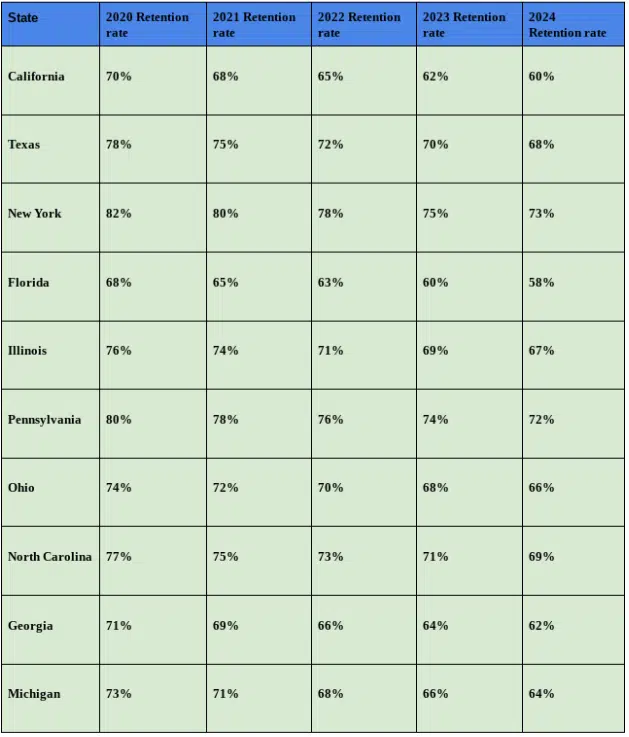Strategies to hire medical assistants and retain them

The task of medical assistants is challenging and stressful because they have to perform a wide range of clinical and administrative activities in the hospital setting. This sort of work calls for them to work full time, including most shifts including on holidays. This enormous load of these activities makes them face stress issues, leading to burnout, and because of this, most medical assistants leave their careers or retire early.
The task of medical assistants is challenging and stressful because they have to perform a wide range of clinical and administrative activities in the hospital setting. This sort of work calls for them to work full time, including most shifts including on holidays. This enormous load of these activities makes them face stress issues, leading to burnout, and because of this, most medical assistants leave their careers or retire early.
The workload increase for medical assistants has been witnessed mostly after the COVID-19 pandemic as patients are visiting in huge multitudes for preventive care. The baby boomer generation is aging, and most of these people are reporting in outpatient clinics, hence more patient volume, which results in a shortage of skilled medical assistants in the USA. In response to such a shortage of medical assistants, facilities have to use long-term strategies for hiring medical assistants as well as for retaining them for the long term. This blog details the hiring strategies for recruiting medical assistants for training and retention in overcoming skilled shortages in medical assistants.
Legal and regulatory considerations in hiring medical assistants
The healthcare sector is changing rapidly regarding technological advancements and care delivery models. It is essential for healthcare facilities to understand and comprehend these trends to develop effective medical assistant hiring strategies and retain skilled medical assistants based on their demand. The following are some key trends in the medical assistant field and their implications for hiring practices.
- Technological advancements in data management and storage have led to an increased use of electronic health record systems in facilities. Although this has saved administrative workload, it imposes an increased demand for hiring medical assistants experienced in these tools. Effective medical assistant retention strategies must be in place to ensure the continuous operation of these systems.
- Telemedicine has been a significant uptrend in the medical field after the setback of the COVID-19 pandemic. Hence, it is essential to have medical assistants who can manage patients remotely and have experience working via telemedicine platforms. This aspect should be a core focus of medical assistant hiring strategies.
- Workforce dynamics have shifted in the healthcare domain to prioritize work-life balance. Temporary hiring of medical assistants who can work on flexible shifts is preferred by most facilities nowadays. This approach can help address issues related to medical assistant burnout and improve job satisfaction.
- Diversity, inclusiveness, and culture fit are buzzwords focusing on employee wellbeing. There is an increased focus on employee wellbeing due to the vast number of healthcare workers getting burned out. Hence, it is essential to prioritize these elements while hiring medical assistants to prevent medical assistant burnout and ensure a supportive work environment.
- Upskilling through continued education and cross-training opportunities is followed by most facilities to meet the rising demand for skilled professionals. While hiring medical assistants, ensure that the candidate values professional development and continuous learning. These strategies are essential for both medical assistant hiring and retention.
Current trends and their implications for the recruitment of medical assistants

Effectively recruit medical assistants by understanding legal guidelines, verifying credentials, ensuring compliance, and maintaining job clarity. Emphasize the importance of a thorough vetting process and provide clear job descriptions to attract qualified candidates. Cultivate a positive and supportive work environment to retain top talent and enhance overall job satisfaction. These strategies enhance hiring success and operational efficiency, ultimately leading to better patient care and a more productive workplace.
Medical assistants, like any other medical profession, have specific legal and regulatory considerations. The state where your facility is located has the right to set the practice guidelines for them. Understand these regulatory guidelines as a first step to navigating legal implications that may arise. Below are some legal considerations to follow while hiring medical assistants, as well as medical assistant hiring strategies:
- Always cross-check whether the medical assistant hired is licensed to practice in the state.
- Verify the credentials of the candidate before onboarding. His license should be active and valid throughout his employment to avoid medical assistant burnout issues.
- Cross-check other employment laws by the state, if any, to avoid compliance concerns and implement effective medical assistant retention strategies.
- Strictly cross-check background for any pending criminal records/charges.
- Pre-employment medical screening is without exemption. A detailed list of job duties that was provided in the job description, in the interview, and in the offer letter shall be made to ensure amiable clarity and reduce the risk associated with medical assistant burnout. These detailed job duties also help in creating effective medical assistant hiring strategies.
Employers’ guide to effective training strategies for Medical Assistants
Recruiting recently graduated medical assistants is one of the easiest methods through which the staffing gap could be filled. These fresh medical assistants, however, are often short of practical experience in the area; thus, they could easily be trained with a mentor’s help to perform clinically in the most efficient way possible. However, facilities have to devise a structured approach to hiring and onboarding new medical assistants with adequate training for this strategy to work. Implementing effective medical assistant hiring strategies is crucial. A well-rounded training plan can be devised by defining objectives and then a timeline to orient under an experienced mentor or supervisor. Orientation can be given in different aspects, including organizational culture, clinical tasks, administrative procedures, and customer service, all of which are discussed below.
- Organizational culture orientation: The organizational culture will include everything that has to do with the facility’s values, beliefs, ethics, and workplace environment. This is important to ensure that the entry-level medical assistants hired fully believe in your mission, vision, and values. This is a key aspect of medical assistant retention strategies.
- Clinical training: Clinical training involves practical experience with the new resources to work in a clinical setting by handling procedures in their job description using medical equipment. This training will also include patient data collection and electronic health record management. Adequate training is necessary to avoid medical assistant burnout.
- Administrative training: As medical assistants perform administrative duties, they must be given an orientation on administrative procedures such as scheduling appointments, billing, insurance claim handling, and customer service.
Once the orientations are provided, introduce the new entry-level medical assistants to the team by ensuring that they can support other experienced medical assistants. Monitor the new medical assistants’ progress and provide constructive feedback for improvement. This may help employers manage their demand for medical assistants more efficiently by effectively training new graduates and implementing robust medical assistant retention strategies.
Methods aimed at promoting the long-term retention of medical assistants
In today’s healthcare staffing environment, retention should be more than just hiring a medical assistant. Effective strategies can cut down on the new need for medical assistants by retaining the available staff in facilities. These are some strategies you should follow to build a loyal team in your facility by retaining medical assistants.
- Research the future prospects of the medical assistant career and offer competitive pay according to market rates
- In addition to pay and health, provide other benefits like career progression and vacation options
- Provide flexible working hours as well as rotating shifts
- Regular monitoring of staff workload to prevent burnouts among medical assistants
- Clear career advancement paths are provided for professional growth.
- Cross-training is provided to progress the skill set. Develop regular performance reviews and a reward cycle for employee motivation.
- Align the staff to your culture to reduce the medical assistant turnover rates.
- Ensure a safe and supportive working environment where no one feels left out.
- Create a safe and supportive work environment where no one feels left out.
According to the analysis by AMASTEPS forward the retention rate of medical assistants in the USA has been declining in recent years. In today’s healthcare staffing environment, retention should focus on more than just hiring new medical assistants; it requires effective strategies to keep the existing staff engaged and satisfied. The table below clearly illustrates the state-by-state decline in retention rates of medical assistants over the past four years, highlighting the need for improved retention practices in the healthcare industry.
State-wise retention drop rates for Medical Assistants in the USA

Source: https://edhub.ama-assn.org/steps-forward
Conclusion
A medical assistant’s challenging yet diversified role is greatly advantageous for healthcare facilities. Through the adoption of the above medical assistant hiring strategies along with proper medical assistant retention strategies towards retaining talent, the medical assistant staffing shortage for any facility can be decreased quite significantly. What you want to do first is conduct the right amount of market research and learn your unique facility needs. To quickly adapt and manage these strategies, you can partner with MedSquirrels to grow your facility.
MedSquirrels is an all-in-one healthcare staffing platform that hires skilled and experienced medical assistants. Once you sign up on our platform and post your job requirements, MedSquirrels will employ AI technology and experienced medical assistant recruiters to submit curated profiles for your job opening. Following the hiring of a medical assistant, our platform initiates the onboarding and credentialing process. Our platform will take care of their payroll, compliance, and benefits while ensuring zero administrative burden and compliance risks on your facility. This approach also helps prevent burnout among medical assistants. Learn more about how MedSquirrels will guide you in hiring medical assistants. Schedule a demo today.
FAQs
What are the key responsibilities of a medical assistant in a healthcare facility?
Medical assistants handle tasks like scheduling, managing patient records, taking vital signs, assisting with procedures, and ensuring smooth clinic operations.
How can healthcare facilities ensure they hire the right medical assistants?
Look for candidates with professional qualifications, soft skills, and technical expertise. Conduct thorough interviews and verify credentials.
What are the key legal considerations for healthcare facilities when hiring medical assistants?
Healthcare facilities must ensure that medical assistants are licensed to practice in their state, verify their credentials, and comply with state-specific employment laws to avoid compliance issues.
How can healthcare facilities use staffing platforms to verify the credentials of medical assistants before hiring them?
Platforms like MedSquirrels can streamline the credential verification process. They handle background checks and compliance, making it easier and more efficient for healthcare facilities compared to traditional hiring methods.
What strategies can healthcare facilities implement to retain medical assistants and prevent burnout?
Offering competitive compensation, providing opportunities for professional development, and ensuring a healthy work-life balance are key strategies. Utilizing platforms like MedSquirrels helps manage payroll, benefits, and compliance, allowing healthcare facilities to focus on employee well-being.
What are the benefits of using a specialized platform like MedSquirrels when hiring medical assistants in healthcare facilities?
MedSquirrels offers a pool of highly qualified medical assistants, streamlines the hiring process, and ensures compliance with legal and regulatory requirements, making it more efficient and reliable compared to traditional hiring methods.
Jani Basha is a healthcare content expert at MedSquirrels, sharing insights on staffing trends, hiring best practices, and career growth.
